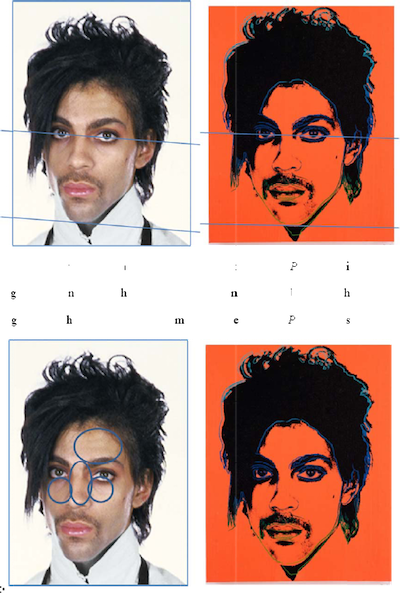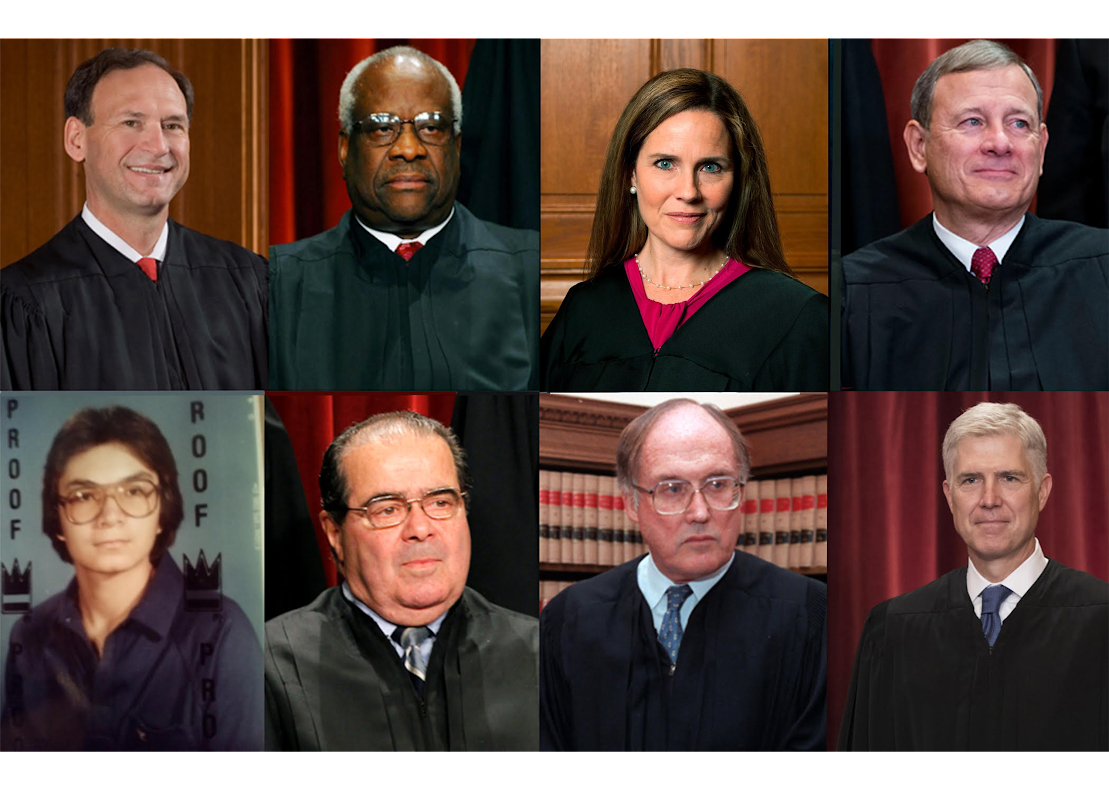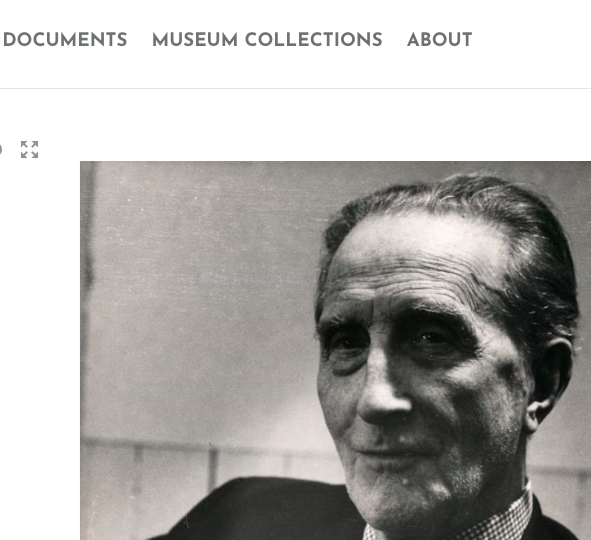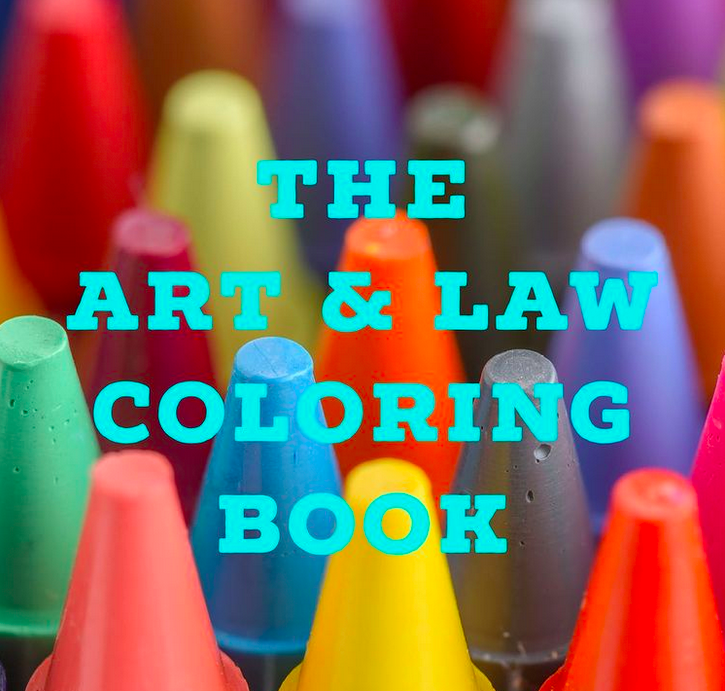“The same people that steal credit cards are the same types of people that steal artwork[,]” according to Chris Marinello of the London-based Art Loss Register.
Will textualism save our copyright planet? Warhol Fdn v. Lynn Goldsmith headed to SCOTUS
Images of Goldsmith and Warhol at issue. The U.S. Supreme Court will review a ruling that an Andy Warhol print infringed a copyrighted photograph taken by photographer, Lynn Goldsmith, of the late musician, Prince. We certainly hope--as much as one can hope for anything these days--that SCOTUS cleans up the wasteland that has become of "fair use" interpretation. One would think, and hope I suppose, that with many of the sitting justices adhering to textualism, they will fully jettison the nonsensical "transformativeness" test that has plagued us like a really bad case of Covid since the mid-1990s. Docs here, via ...


Podcast: Stephanie Drawdy and Sergio Munoz Sarmiento on All Things Art and Law
Ahh...Youth! Sergio Munoz Sarmiento. (2015 - ongoing), C-Print. © and TM Sergio Muñoz Sarmiento. All rights reserved. I had a lovely conversation with fellow lawyer and artist, Stephanie Drawdy, on the NFT craze, pets, art law, and the origins of The Art & Law Program. You can listen to the Podcast here. Hope you enjoy!


Marcel Duchamp archives now online, free of charge
The Philadelphia Museum of Art, the Centre Pompidou, and the Association Marcel Duchamp have digitized their vast archives of material on the Dadaist and placed it online, where it is free to all. Enjoy!


The Art & Law Coloring Book
If you have kids at home and want them to do something fun and educational, try the Art & Law Coloring Book, an ongoing project by The Art & Law Program. Really a great collection of drawings by great artists, including: Emma Jane Bloomfield Damien Davis Molly Dilworth João Enxuto Soda Jerk Clare Kambhu Alexandra Lerman Erica Love Douglas Melini Sergio Muñoz Sarmiento Melinda Shades Elisabeth Smolarz Gabriel Sosa Alfred Steiner Valerie Suter Happy coloring!


What are NFTs and what does it mean to own one?
If you're confused as to what the hell NFTs are, particularly art NFTs, here's a new article by Alfred Steiner that pretty much walks you through and safely out of the NFT hell. In his article, Steiner explains what NFTs are and what it means to own one. He also discusses why that meaning of ownership—which may appear novel to many—isn’t new at all when considered against the backdrop of the market for conceptual art. Steiner concludes with some observations about how NFTs may be good and bad for the art industry.


Donn Zaretsky clarifies some media misinformation.
Murakami left Boesky more than six years ago. There’s no earthly reason why she should continue to print and distribute his work on her own.
On Thursday, Mr. Ramnarine, 58, was indicted on charges he used Mr. Johns’s mold to surreptitiously make a bronze sculpture that he attributed to Mr. Johns and tried to sell for $11 million, according to the United States attorney in Manhattan.
Via The NY Times.
Claiming fraud, two Metropolitan Museum of Art members filed a lawsuit in the New York State Supreme Court yesterday alleging that the historically free, public institution has been deceiving visitors into paying entry fees.
We have to say it’s not just the sign, or lack thereof, that makes one pay a “suggested fee.” Sometimes it’s just guilt. But with the “fiscal cliff” looming, we can’t say we totally disagree with the plaintiffs.
Christie’s told The Art Newspaper it took seriously matters of trademark infringement and wanted to protect the public and its clients from deception. “We encourage clients and the public to exercise due diligence when selecting auction houses to work with,” the company said in a statement.
Lawyers acting on behalf of Chritrs argued that although the two company names were pronounced almost identically, the company’s marketing mainly took place in print form and not verbally[.]
Via The Art Newspaper. I wrote a bit about the increasing issues between the “east” and the “west” earlier this year via Art Asia Pacific.
The New York State Supreme Court ruled in favor of Sotheby’s today, denying art dealer Marc Jancou’s claim that the auction house broke its contract when they withdrew his Cady Noland aluminum print from a sale late last year.
Via Artinfo.
Well, in the last thirty years, there has been a shift from a labor economy to a knowledge economy. Consequently, intangible assets (with IPR being chief among them) have emerged as the most powerful asset class, overtaking more traditional capital assets such as real estate, plant and equipment. … Thus, if the civil rights movement is to continue – a movement that was about righting economic disparities – focusing on IP as the 21st century economic rights makes sense.
I’ve noted and written about this before, and interestingly, after Obama’s re-election, there was this interesting blog entry by Chris Bickerton and Alex Gourevitch about the disconnect between Obama’s crafting of identity politics and the economy. Indeed, the rebirth of identity politics is disturbing enough, highlighting at best a regression to 1993 and, at worst, a championing of the “victim” mentality.
What is interesting to note about Raymond Millien’s article, The Real McCoy: Should Intellectual Property Rights be the New Civil Rights in America?, is that it doesn’t look to simply reignite the definitions of “minority” for social, cultural, and political gain. Rather, it addresses what Bickerton and Gourevitch observe by connecting the economic and socio-cultural disparities via intellectual property. By doing so, it indirectly attacks the pro-free culture movement, unveiling what is to most either unseen or, if seen, too disturbing to address: the fact that the pro-free culture movement is in fact a neo-liberal crusade willing to trade economic parity for cultural pipe dreams.
Clancco, Clancco: The Source for Art & Law, Clancco.com, and Art & Law are trademarks owned by Sergio Muñoz Sarmiento. The views expressed on this site are those of Sergio Muñoz Sarmiento and of the artists and writers who submit to Clancco.com. They are not the views of any other organization, legal or otherwise. All content contained on or made available through Clancco.com is not intended to and does not constitute legal advice and no attorney-client relationship is formed, nor is anything submitted to Clancco.com treated as confidential.
Website Terms of Use, Privacy, and Applicable Law.

